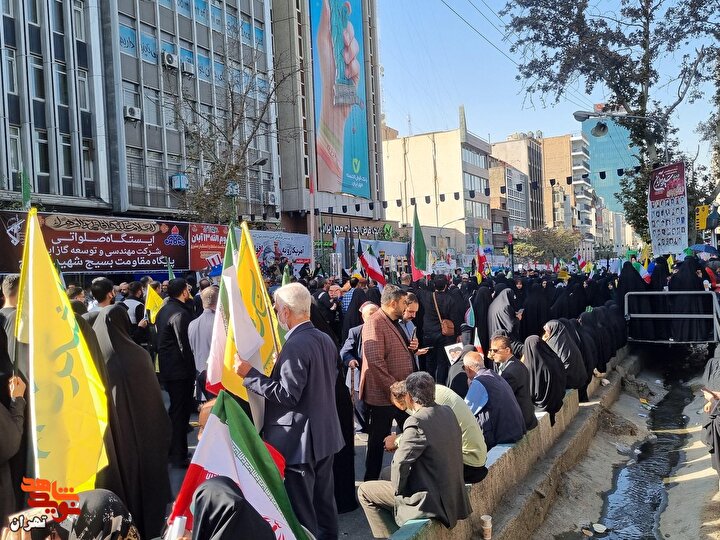
Falahat Pisheh:
West Aims to Hijack Regional Revolutions
Navideshahed: Stressing that revolutionary movements were genuine and popular, a senior member of Iranian parliament said: "The highest attention of revolutionary nations must be to the post-victory stage and establishment of new political systems."

Member of the National Security and Foreign Policy Commission of the Iranian Parliament (Majlis), Heshmatollah Falahat-pisheh made the remark in comments made about IRI Supreme Leader Ayatollah Seyyed Ali Khamenei's warning against plots hatched by enemies to hijack the Muslim world's achievements.
Nations in Muslim countries must be vigilant and cautious not to permit enemies to hijack their victories, said Ayatollah Khamenei in an address to massive crowds of worshippers during the Eid al-Fitr prayers at Tehran University on Wednesday.
Speaking to ICANA, Falahat-pisheh noted: "Since 2001 when Western states created their cultural committees with an aim to interfere in different regions, they intended to maintain presence whenever a new development occurred in order to hijack the events there."
The lawmaker added: "The aim of the domination seeking powers behind this hijacking was to facilitate creation of a base to consolidate their position in the said region. Another aim of this seizure is to leave long-term impact on the people from cultural point of view."
Emphasizing that "turning threats into opportunities" was among the most important plans of the imperialist powers in the revolutionary region, Falahat-pisheh noted: "What is cited now as post-revolutionary developments is an attempt by certain countries to hijack revolutionary movements. That is to say they are working to turn a revolution which has been shaped with an aim to overthrow dictators into a system following the West's geopolitical policies."
Pointing to the contrast in revolutionary countries, the MP said: "The distinction we are witnessing in countries where new revolutions have occurred is the contrast between revolution and strategy."
He went on to say: "Revolution means is clear wish for the people's presence in the political scene but strategy means a clandestine wish by the Western powers to influence the political developments in different countries."
Pointing to the experience of Iran's Islamic Revolution in detecting plots of the enemies, the MP said: "Two years into the victory of the 1979 Islamic Revolution various states in the West and the East had devoted a big portion of their energy to deviate the Iranian revolution."
Noting that the Arab states had no experience in this regard and could be easily misled, Falahat-pisheh said Iran was ready to transfer its experience within general diplomacy, culture and cultural goods related to its Islamic revolution.
The End
Source: Islamic Consultative Assembly News Agency
Member of the National Security and Foreign Policy Commission of the Iranian Parliament (Majlis), Heshmatollah Falahat-pisheh made the remark in comments made about IRI Supreme Leader Ayatollah Seyyed Ali Khamenei's warning against plots hatched by enemies to hijack the Muslim world's achievements. Nations in Muslim countries must be vigilant and cautious not to permit enemies to hijack their victories, said Ayatollah Khamenei in an address to massive crowds of worshippers during the Eid al-Fitr prayers at Tehran University on Wednesday. Speaking to ICANA, Falahat-pisheh noted: "Since 2001 when Western states created their cultural committees with an aim to interfere in different regions, they intended to maintain presence whenever a new development occurred in order to hijack the events there." The lawmaker added: "The aim of the domination seeking powers behind this hijacking was to facilitate creation of a base to consolidate their position in the said region. Another aim of this seizure is to leave long-term impact on the people from cultural point of view." Emphasizing that "turning threats into opportunities" was among the most important plans of the imperialist powers in the revolutionary region, Falahat-pisheh noted: "What is cited now as post-revolutionary developments is an attempt by certain countries to hijack revolutionary movements. That is to say they are working to turn a revolution which has been shaped with an aim to overthrow dictators into a system following the West's geopolitical policies." Pointing to the contrast in revolutionary countries, the MP said: "The distinction we are witnessing in countries where new revolutions have occurred is the contrast between revolution and strategy." He went on to say: "Revolution means is clear wish for the people's presence in the political scene but strategy means a clandestine wish by the Western powers to influence the political developments in different countries." Pointing to the experience of Iran's Islamic Revolution in detecting plots of the enemies, the MP said: "Two years into the victory of the 1979 Islamic Revolution various states in the West and the East had devoted a big portion of their energy to deviate the Iranian revolution." Noting that the Arab states had no experience in this regard and could be easily misled, Falahat-pisheh said Iran was ready to transfer its experience within general diplomacy, culture and cultural goods related to its Islamic revolution. The End Source: Islamic Consultative Assembly News Agency



